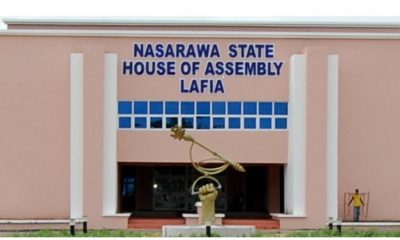Business
Expert Tasks FG On Manufacturers’ Challenges
A financial expert, Mr Boniface Okezie, has called on the Federal Government to tackle the challenges facing manufacturers to grow the nation’s Gross Domestic Products (GDP) to enhance the economy and the capital market.
Okezie, who is also the President of Shareholders Association of Nigeria (SAN), made the call in an interview with newsmen in Lagos.
According to him, manufacturers are the major drivers of economic growth, and if they can operate optimally, there will be employment opportunities and this will boost GDP, the economy and invariably the capital market.
“There is no magic that will strengthen the naira and ensure availability of dollars when the country has been import-dependent.
“The manufacturers are suffering from inability to source dollars for raw materials due to high exchange rate, epileptic power supply and economic instability among others.
“The way forward is for the Federal Government to create an enabling environment for the manufacturers to operate effectively,” he said.
The expert said an enabling environment and stable policy would encourage foreign investors to bring hard currencies into the economy and lower the exchange rate.
Meanwhile, an analysis of transactions in the capital market last week showed that a total of 1.533 billion shares worth N23.026 billion were traded by investors in 17,009 deals.
This was in contrast with a total of 968.947 million shares valued at N10.246 billion exchanged in 9,654 deals the previous week.
The Financial Services Industry (measured by turnover) led the week’s activity chart with 1.218 billion shares valued at N12.634 billion traded in 10,132 deals.
The Conglomerates Industry followed with 70.807 million shares worth N120.611 million in 803 deals.
The third place was occupied by Consumer Goods Industry with a turnover of 58.505 million shares worth N3.422 billion in 2,624 deals.
The All-Share Index during the period lost 577.72 points or 1.63 per cent to close at 34,848.45 against 35,426.17 posted in the preceding week.
Also, the market capitalisation which opened at N12.933 trillion shed N211 billion or 1.63 per cent to close at N12.722 trillion.
NAN reports that 34 equities depreciated in price, lower than 45 equities of the previous week.
IkejaHotel topped the losers’ chart in percentage terms by 18.64 per cent or 52k to close at N2.27 per share.
First Aluminium trailed with a loss of 15 per cent or 6k to close at 34k, while Glaxosmith shed 14.38 per cent or N2.20 to close at N13.10 per share.
Conversely, Portland Paints led the gainers’ table in percentage terms by 20.65 per cent or 15k to close at N2.98 per share.
AIICO Insurance followed with a gain of 17.14 per cent or 12k to close at 82k, while PZ Cussons appreciated by 14.94 per cent or N1.95 to close at N15 per share.
FG offers 2 savings bonds at 11.36%, 12.36% September
The Federal Government has offered for subscription two-year savings bond at 11.36 per cent and three-year savings bond at 12.36 per cent, the Debt Management Office (DMO) has said.
According to the offer circular obtained from the DMO website yesterday, the two-year bond will be due in Sept. 2020 while the three-year bond will be due in Sept. 2021.
It, however, did not state how much was offered, but added that the maximum subscription was N50 million at N1,000 per unit, subject to minimum subscription of N5,000 and in multiples of N1,000.
The website said that the bond was fully backed by the full faith and credit of the Federal Government, with quarterly coupon payments to bondholders.
The savings bond issuance is expected to help finance the nation’s budget deficit.
It is to also part of the Federal Government’s programme targeted at the lower income earners to encourage savings and also earn more income (interest), compared to their savings accounts with banks.
The circular also said that the offer would close on Friday.
Business
NCDMB, Dangote Refinery Unveil JTC On Deepening Local Content

Business
Industry Leaders Defend Local Content, … Rally Behind NCDMB

Business
Replace Nipa Palms With Mangroove In Ogoni, Group Urges FG, HYPREP

-
Niger Delta21 hours ago
C’River Hands Over Rubber Plantation to Private Company
-

 Nation20 hours ago
Nation20 hours agoHYPREP Reaffirms Support For Ogoni Youths …Organises Workshop For Undergraduates
-

 Business22 hours ago
Business22 hours agoIndustry Leaders Defend Local Content, … Rally Behind NCDMB
-

 Politics19 hours ago
Politics19 hours agoNasarawa Speaker Advocates Conducive Executive/Legislature Relations
-
Niger Delta21 hours ago
Delta Leverages On Extensive River Networks To Drive Blue Economy
-
News20 hours ago
FG Renames University of Maiduguri After Buhari …As Tinubu Pours Encomiums On Late President
-
News22 hours ago
PCRC Dismisses Claims Of Police Strike As Fake, Mischievous
-

 News18 hours ago
News18 hours agoRivers PDP Debunks Sale Of LGA Election Forms

